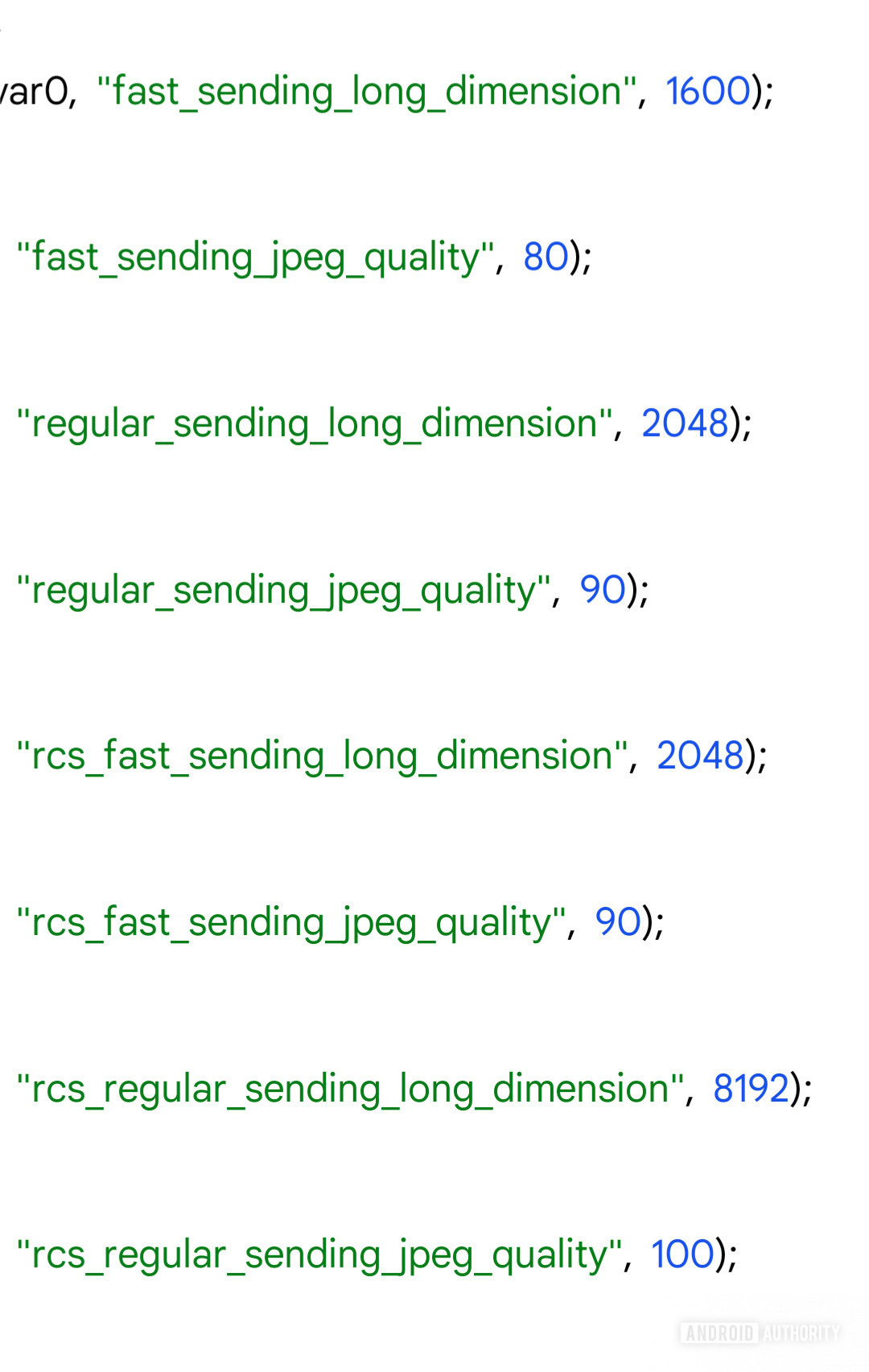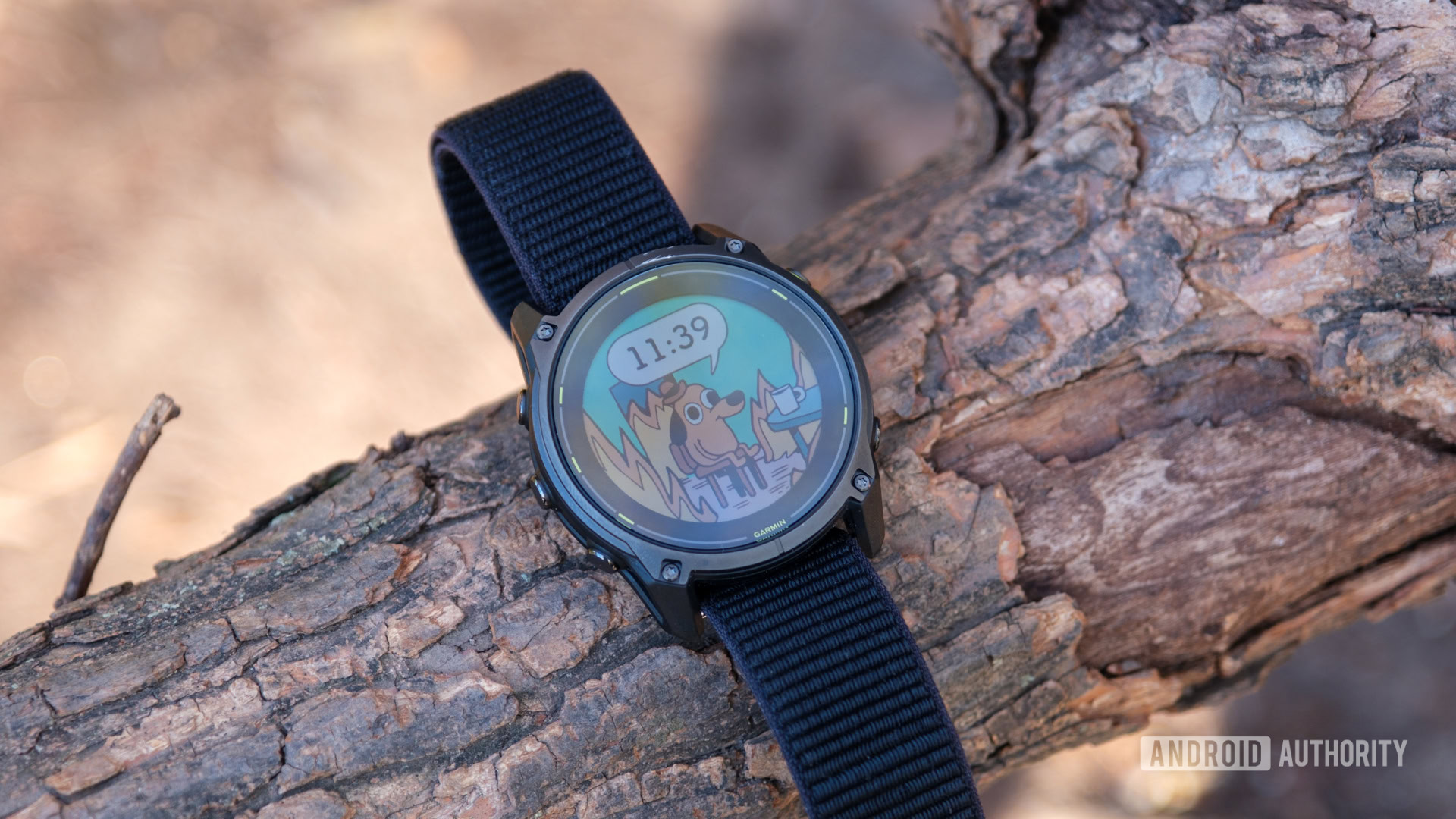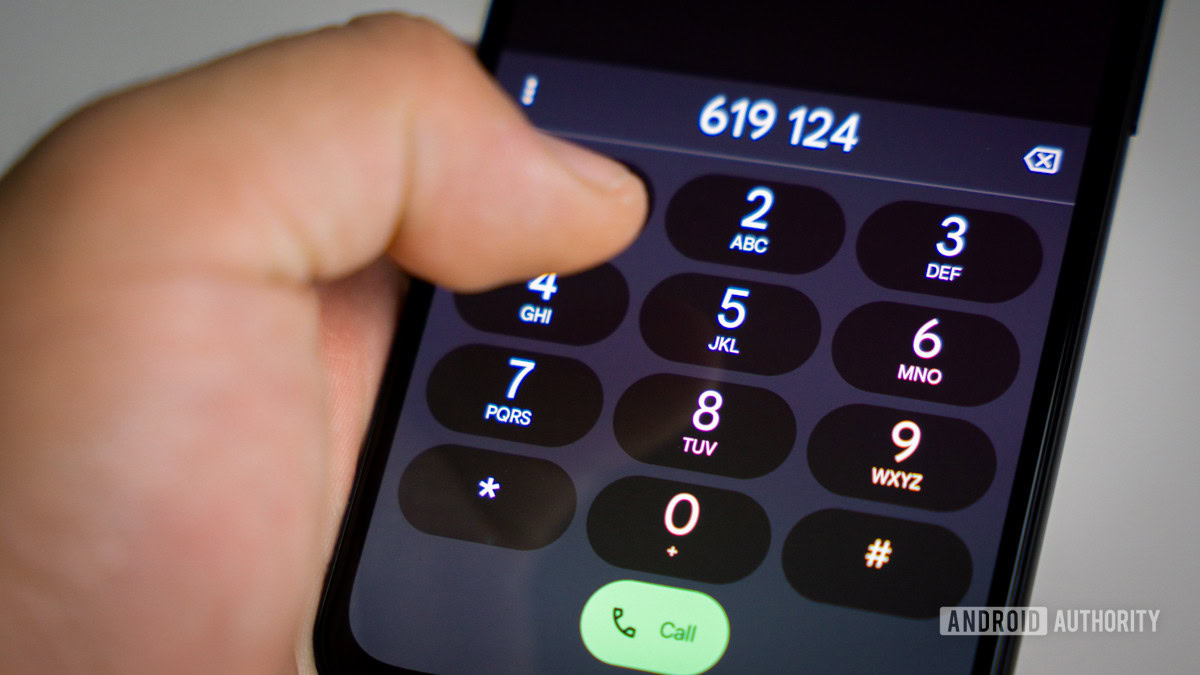TL;DR
- Google Messages may soon finally support higher-quality image transfers over RCS.
- Right now, iPhone (beta) users can send high-res pics to their Android friends on Messages, but it doesn’t work the other way around.
- New compression and resizing options tailored specifically for RCS appear to be in the works.
Change is coming to how we message each other, and with rich communication services (RCS) finally starting to take off, the dream of high-quality messaging across platforms may soon be a reality. But the road there hasn’t been a journey without some bumps along the way, and just the other week we were warning you about a serious problem with Google Messages and how it handles sending photos over RCS. Thankfully, it appears that Google is already on the case, working on a solution.
An APK teardown helps predict features that may arrive on a service in the future based on work-in-progress code. However, it is possible that such predicted features may not make it to a public release.
One of the real strengths of RCS is how it’s built for modern networks that can handle a little data, and doesn’t shy away from supporting big file attachments. In theory, that should really enrich our chats, as we’re able to share high-quality imagery with ease. Unfortunately, most Android users access RCS through Google Messages, and that app has a very bad habit of both extremely aggressive image resizing and image recompressing — in one of our tests, Messages shrunk a 50MP, 6MB image down to just a 1.9MP, 147kB shadow of its former self.
This behavior, we managed to establish, is solely the result of sending pictures with Google’s app. Samsung Messages supports sending pics in their original size, and while Apple recompresses images sent from iPhones, it keeps the resolution and quality intact. Even though Google has offered a Send photos faster toggle that controls the degree of resizing, the effect is minimal, and either on or off, photo quality is extremely reduced. That left the ball in Google’s court to come up with a fix. We can’t say if our recent complaint about this managed to shake the tree any, but check out what happened next:
Looking at a new build of the Google Messages app (version messages.android_20240715_00_RC00.phone_samsung_openbeta_dynamic) we discover several signs of a fresh approach to image transfers. First off, there’s a flag (not enabled by default) labeled bugle.enable_different_rcs_image_compression_settings. Just based on what it’s called alone, that sure sounds like something that’s going to address our RCS photo-transfer concerns.
Beyond that, we find some code that might illuminate how these new settings will work. In our earlier tests, we saw Messages scale a picture with Send photos faster turned on down to a vertical resolution of 1,600 pixels, and scale the same pic down to 2,400 pixels tall with the toggle off. But now, to these fast/regular options, Google appears to be working on new ones that are explicitly calibrated for RCS:

Assemble Debug / Android Authority
You can see the old settings up top, which are now being joined by new RCS versions. Once this system is operational, even the lowest-quality compression over RCS would match the best you ever got with Messages before. And going forward, Messages should support sending pics measuring up to 8,192 pixels tall/wide. While it might have been nice to not have a ceiling there at all, we can appreciate the desire to set a practical limit, and this one at least seems high enough that most users shouldn’t notice.
One of the big reasons we were concerned about this in the first place is that it felt like Google failing to take advantage of the potential of RCS, and in doing so, letting down legions of Android users who have long felt like second-class messaging citizens. By allowing Android users to share high-quality photos with their iPhone peers as easily as it works the other way, Google will be taking a big step towards making RCS feel as equitable as we’ve all wanted it to be.
Got a tip? Talk to us! Email our staff at [email protected]. You can stay anonymous or get credit for the info, it's your choice.







 English (US) ·
English (US) ·